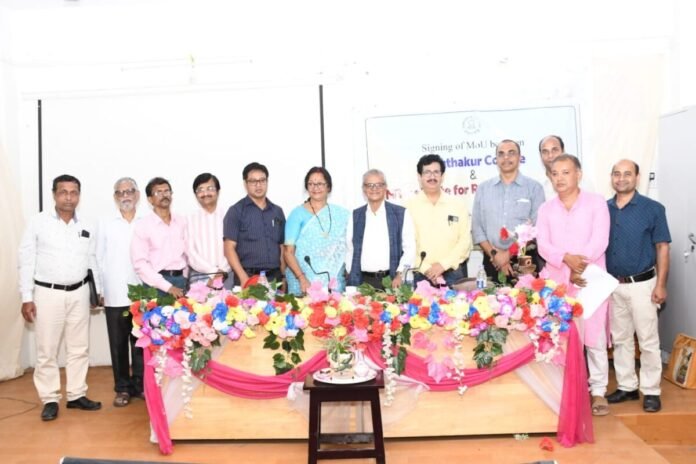The National Bamboo Research Institute of Tripura (NBIRT) has forged a pioneering Memorandum of Understanding (MoU) with Ramthakur College. This collaboration aims to equip young individuals with technical skills and knowledge in bamboo cultivation, processing, and utilization, thereby contributing to sustainable development and economic empowerment in the region.
Tripura, endowed with abundant bamboo resources, holds immense potential for the bamboo industry to drive socio-economic growth and environmental sustainability. Recognizing this opportunity, NBIRT, an apex research institution dedicated to bamboo research and development, has taken proactive steps to harness the potential of bamboo through innovative partnerships and initiatives.
The MoU signed between NBIRT and Ramthakur College is a testament to the commitment of both institutions to nurture talent and promote skill development among youth. Under this collaboration, Ramthakur College will offer certificate and diploma courses in bamboo technology, which will be designed and delivered in collaboration with NBIRT experts.
The courses will cover a wide range of topics, including bamboo cultivation techniques, value addition processes, product design, marketing strategies, and entrepreneurship development. Through a blend of theoretical knowledge and hands-on training, students will acquire practical skills that are relevant to the bamboo industry and aligned with the evolving needs of the market.
One of the key objectives of the MoU is to create a talent pipeline of skilled professionals who can contribute to the growth and innovation of the bamboo sector in Tripura and beyond. By providing quality education and training in bamboo technology, the partnership aims to bridge the gap between academia and industry and empower youth with the tools and resources they need to succeed in the workforce.
Moreover, the collaboration between NBIRT and Ramthakur College reflects a holistic approach to education that emphasizes sustainability, innovation, and community engagement. Bamboo, often referred to as “green gold,” holds immense potential as a renewable and environmentally friendly resource that can support diverse industries, including construction, furniture, handicrafts, and bioenergy.
By integrating bamboo technology into the curriculum, students will not only gain valuable technical skills but also develop a deeper understanding of the ecological, economic, and social dimensions of bamboo cultivation and utilization. This interdisciplinary approach to education equips students with a well-rounded perspective and prepares them to address complex challenges facing the bamboo sector.
Furthermore, the MoU paves the way for collaborative research and development initiatives between NBIRT and Ramthakur College. Through joint projects, workshops, and knowledge exchange programs, faculty members and students will have the opportunity to engage in cutting-edge research and innovation that can drive advancements in bamboo technology and contribute to the overall growth of the sector.
The partnership also opens up avenues for industry-academia collaboration and entrepreneurship opportunities for students. By fostering connections with local enterprises, cooperatives, and government agencies involved in the bamboo value chain, students will have the chance to gain real-world experience, access mentorship and funding support, and explore pathways to establish their ventures in the bamboo sector.
Moreover, the MoU aligns with the broader vision of the Government of Tripura to promote bamboo-based livelihoods, entrepreneurship, and sustainable development in the state. By investing in human capital and building capacity in bamboo technology, Tripura can harness its natural resources more effectively, create employment opportunities, and improve the livelihoods of local communities.
In addition, the innovative MoU signed between NBIRT and Ramthakur College represents a landmark initiative to empower youth with technical skills and knowledge in bamboo technology. By combining academic rigor with hands-on training and industry collaboration, the partnership has the potential to transform the bamboo sector in Tripura and unlock new opportunities for sustainable development and economic growth. As students embark on this educational journey, they are poised to become catalysts for change, innovation, and prosperity in the region.


